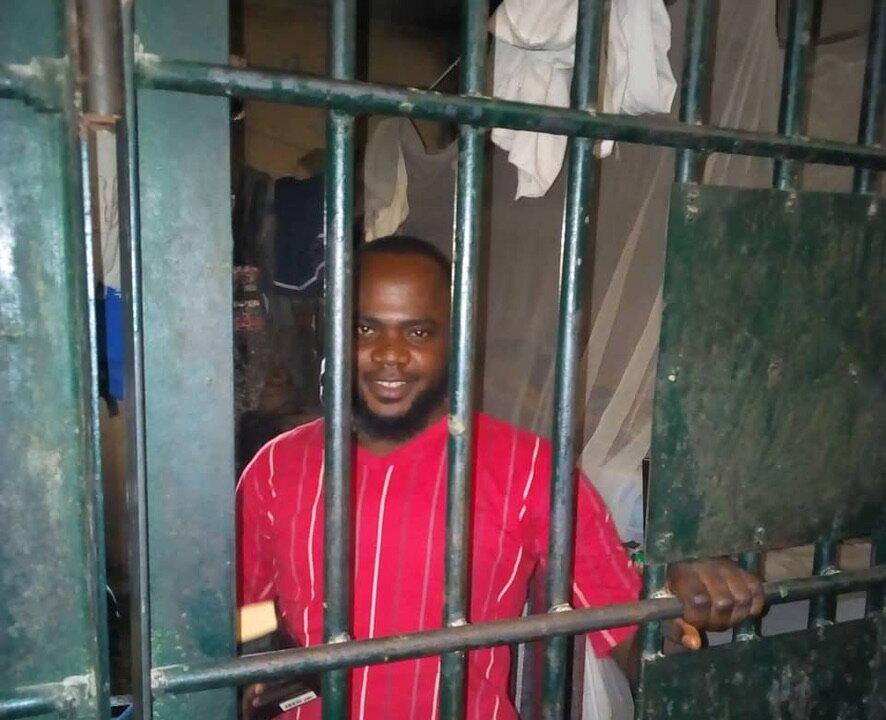
Stefan Kefason, social media journalist behind bars in the Kaduna state prison in 2019. Courtesy Stefan Kefason
BIRNIN KEBBI, Nigeria—Press freedom in Nigeria is under growing attack, according to media watchdogs and reporters interviewed by The Epoch Times.
That’s the opinion of human-rights lawyer Yakubu Bawa, who spoke to The Epoch Times in his office in Jos.
